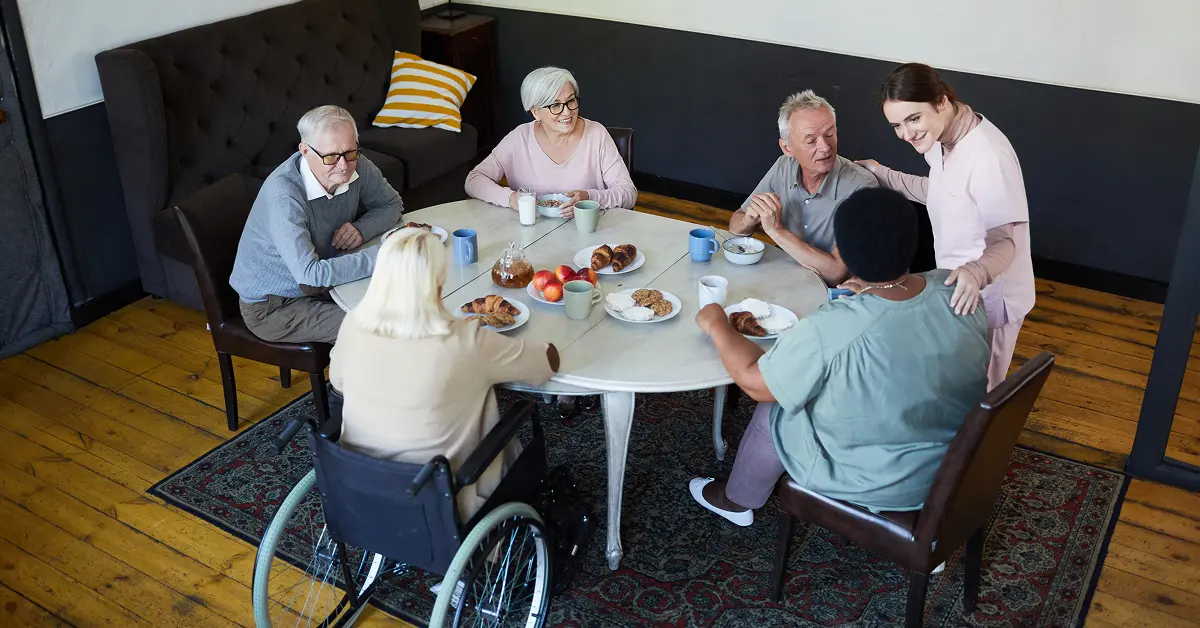Caring for aging parents is one of the most rewarding yet challenging roles an adult child can take on. In India, where family bonds and responsibilities run deep, most of us grow up expecting to look after our elders when the time comes. But as jobs become more demanding and nuclear families more common, balancing caregiving duties with daily life can become overwhelming. If not managed well, it can lead to caregiver burnout, a state of emotional, mental, and physical exhaustion.
If you're currently caring for Parent Caregiver or preparing to take on that responsibility, this guide will show you how to do so compassionately and efficiently—without burning out.
What Is Caregiver Burnout?
Caregiver burnout is a state of physical, emotional, and mental exhaustion that can happen when you’re spending more time and energy taking care of someone else than taking care of yourself. Signs include:
- Constant fatigue
- Feelings of resentment
- Sleep disturbances
- Irritability or anxiety
- Social withdrawal
In Indian households, many caregivers (especially women) often suppress their stress because of cultural expectations. However, ignoring burnout can damage both your health and your ability to provide good care.
Acknowledge the Challenge
The first step to preventing burnout is acknowledging that caregiving is tough. Whether it’s managing medication, doctor visits, mobility, or just providing emotional support—it’s a full-time job.
In many Indian families, caregiving is seen as a moral duty. While that’s admirable, it’s important to understand that needing help or feeling tired doesn’t make you a bad son or daughter. You're human.
Create a Care Plan
Instead of reacting to emergencies, take a proactive approach:
- Medical Management: Keep a record of medications, doctor appointments, test results, and health conditions.
- Daily Routine: Build a fixed routine for meals, walks, hygiene, and sleep.
- Emergency Protocols: Keep emergency contact numbers, insurance details, and medical documents in one place.
This structure reduces day-to-day decision fatigue and gives you more control.
Involve Other Family Members
Care should never fall on one person’s shoulders. Even if you are the primary caregiver, don’t hesitate to ask for support:
- Siblings can help financially or take turns in caregiving.
- Relatives or cousins can be involved during weekends or festivals.
- Family WhatsApp groups can be used to coordinate tasks or emergencies.
Share the responsibility—it’s a family issue, not just yours.
Hire Professional Help
Hiring a trained caregiver or nurse can be a huge relief, especially for tasks like:
- Administering medicines
- Physiotherapy
- Daily hygiene and toilet assistance
- Feeding or meal preparation
In metro cities like Mumbai, Delhi, and Bengaluru, agencies now provide reliable in-home elderly care services. The cost may seem like a luxury, but the peace of mind is often worth it.
Use Technology for Support
Several Indian startups are creating tools to make elder care easier:
- Health Apps: Use apps like Practo, 1mg, or MedPlus for online doctor consultations and medicine delivery.
- Video Monitoring: Use home cameras (with consent) to keep an eye on their safety when you're away.
- Reminder Systems: Set alarms or digital reminders for their medications.
These smart solutions reduce your physical involvement without compromising care.
Focus on Communication
Many elderly parents feel neglected—not because they lack physical care, but emotional connection.
- Make time for daily conversations, even if they are short.
- Show empathy by listening, not just instructing.
- Involve them in light decisions like meal planning or simple chores.
This boosts their emotional well-being and reduces dependence on you for constant engagement.
Set Boundaries
Boundaries are not disrespectful—they're necessary. It’s okay to:
- Say "no" when you're exhausted.
- Schedule alone time or weekends off.
- Let them know when you're unavailable due to work or rest.
A little assertiveness helps avoid resentment and preserves long-term relationships.
Take Care of Yourself
Your health matters too. If you're running on empty, you won't be able to care for others. Focus on:
- Sleep: Get at least 6–8 hours of quality rest.
- Nutrition: Eat healthy meals on time.
- Exercise: Even 20 minutes of yoga or a walk helps reduce stress.
- Mental Health: Consider talking to a therapist if you feel overwhelmed.
You deserve care just as much as your parents do.
Join a Support Network
You are not alone. There are several online and offline communities for caregivers in India:
- Facebook groups like “Elder Care India”
- Caregiver meetups in urban cities
- Non-profits like Dignity Foundation or HelpAge India
Talking to others who are in the same situation brings perspective and emotional support.
Know When to Choose Institutional Care
Sometimes, professional care in an Elderly Care Services home or assisted living facility is the best option. This may be necessary if:
- Your parent has advanced dementia or Alzheimer’s
- There are repeated falls or safety issues
- You live in another city and visits are rare
This decision is never easy, especially in Indian society, but it can sometimes offer better quality of life for both you and your parents.
Final Thoughts
Caring for elderly parents is an act of love—but love doesn’t mean sacrificing your own life or health. With proper planning, shared responsibilities, professional support, and self-care, you can provide compassionate care without feeling consumed.
Contents
Our 24*7 services
Latest Posts
- What Is Respite Care and Why Is It Important
- Affordable home care for senior citizens in India
- Caring for Seniors with Dementia or Alzheimer's at Home
- Senior Caregiving A Guide for Every Family
- How to Write a Caregiver Resume That Gets You Hired
- How Care After Hospital Discharge Speeds Up Recovery at Home
- How to Get Home Health Care for Seniors Through Medicare
- What Does a Senior Citizen Caregiver Really Do at Home
- How to Care for Elderly Parents with Alzheimer’s or Dementia
- How to Get 24-Hour Care for Seniors at Home


